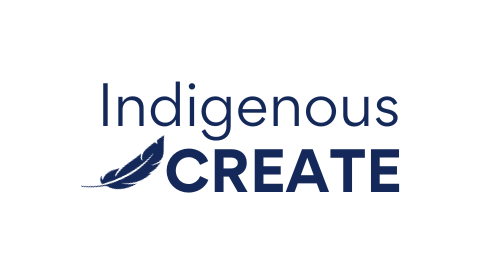Our Research Team reflects a wide diversity of expertise and experience that celebrates student-centered research and teaching. All members are committed to the mentorship and ultimate employment of trainees as they develop their research skills and prepare for work in the environmental sector and are especially committed to Indigenous trainees. Each co-applicant and collaborator will be able to work with and actively mentor student trainees (Themes 1-2); help develop resources that will be made available to other students and the general public (Themes 3-4); when appropriate engage in the governance of the program (Program Advisory Council); promote and extend the network and scope of the program’s activities and supports; and/or help evaluate the program as it evolves over the six-year funding cycle.
![]()
Assistant Director, Aboriginal and Northern Studies, University College of the North
Themes: 1, 3 and 6.
Research and education Focus: Indigenous education and waste management.
Bio: Dr. Assuah is a collaborator on the project. Anderson is an environmental researcher and educator. His research expertise spans across waste management and governance, community forestry, sustainability, environmental policy, social learning, and indigenous learning.
He sees his purpose in life as assisting, supporting, and encouraging other people to achieve their goals and ambitions. Anderson has been the president of the Ghanaian Union of Manitoba Inc. (May 2019 – Present). He loves to play and watch football (soccer).
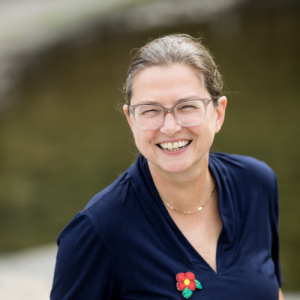
Professor, Department of Soil Science, University of Manitoba
Themes 1 and 5
Research and education Focus: Water quality, pesticide fate in soil and water
Bio: Dr. Farenhorst is a co-applicant on the project and was the PI on CREATE H2O, which focused on Indigenous concerns related to water quality. Dr. Farenhorst’s natural science research focuses on the fate and distribution of current-use pesticides in soil and water, and particularly on chemical sorption by matrices such as soils, sediments, plants, humic substances, microplastics and biochars. Both her natural and social science research focuses on drinking water quality in First Nations reserves, including that her students are monitoring for bacteria, antibiotics, and antibiotic resistance genes in tap water and wastewater, and have been conducting surveys to better understand the impact of poor drinking water quality on First Nations. In addition, her team developed the Faculty Workplace Climate Survey that is administered to natural sciences and engineering faculty from universities across Canada, and has advanced Canada’s understanding of gender inequities experienced by academics.
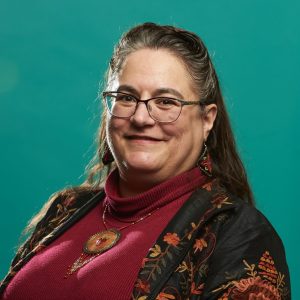
Associate Professor, Department of Indigenous Studies, University of Manitoba
Themes 1, 3 and 5
Research and education Focus: Indigenous curricula and decolonizing histories Her research is also in Anishinaabe leadership in the early 19th century, Anishinaabe women’s history, Treaties and sovereignty, Wisconsin Indian History, and Cultures of the Great Lakes Region.
Bio: Dr. Miller is a co-applicant on the project. Dr. Miller is an Anishinaabe scholar who descends from St. Croix and Leech Lake communities. From 2013 she was the Director of American Indian Studies at the University of Wisconsin-Milwaukee and since 2010 has been Associate Professor in the Department of History at the University of Wisconsin-Milwaukee (starting there in 2002). Her book Ogimag: Anishinaabeg leadership 1760-1845 was published with the University of Nebraska Press in 2010 and she previously has published in books such as Centering Anishinaabeg Studies: Understanding the World through Stories and the Encyclopedia of United States Indian Policy and Law.

Assistant Professor, Faculty of Kinesiology and Recreation Management, University of Manitoba
Themes: 1, 2 and 5
Research and Education Focus: Indigenous education and land-based education.
Bio: Dr. Henhawk (Kanien’kehá:ka) is a collaborator on the project.
“My research interests revolve around the multiple conceptualizations of leisure and the socio-cultural study of sport and recreation. Specifically, I’m interested in how understandings and meanings of leisure are changing in relation to understandings of work. As well, I’m also interested in Indigenous notions of decolonization, indigenization, sovereignty and self-determination. Overall, the main thread of my research seeks to trouble modern Western conceptualizations of leisure and, by extension, notions of work through a critical Indigenous lens. In my work, I strive to privilege Indigenous ways of knowing and of being in the world.”
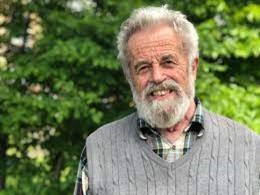
Professor, Department of Earth Sciences, Laurentian University
Themes: 3 and 5.
Research and education Focus: Climate change impacts and adaption, and First Nations.
Bio: Dr. Pearson is a collaborator on the project.
David Pearson was the Project Director and then founding Director of Science North from 1980 to 1986 and is currently Senior Science Advisor to the centre. He has hosted two science television series: “Understanding the Earth” for TV Ontario, and “Down to Earth” for Mid-Canada Television, as well as a weekly radio spot, “Radio Lab”, on CBC Northern Ontario Radio. He received the Ward Neale Medal from the Geological Association of Canada for promotion of the Earth Sciences in Canada in 2001 and the McNeil medal for science communication from the Royal Society of Canada in 2003. David chaired the Ontario office of the Canadian Climate Impacts and Adaptation Research Network from 2002 to 2007; co-chaired the Ontario Expert Panel on Climate Change Adaptation, and chaired the Far North Science Advisory Panel for the Ontario Government that released its report “Science for a Changing Far North” in 2010. David is currently Science Advisor to the Ontario Centre for Climate Impacts and Adaptation Resources at Laurentian and is working with Far North Ontario First Nation communities on climate change adaptation plans.
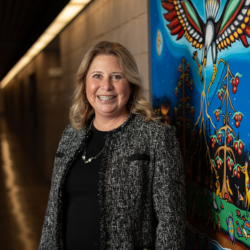
Vice-Provost, Indigenous Initiatives Department, Lakehead University
Themes 1, 2, 3 and 4
Research and education Focus: Indigenous education and equity
Bio: Professor Baxter (Anishinaabe) is a collaborator on the project. As an established education leader, Denise has worked in multiple contexts including public school boards, Ministry of Education, Lakehead University and First Nations private schools. Within each of these contexts, she has built capacity and partnerships with multiple community stakeholders. Her work with the community has involved education conferences, workshop presentations, and capacity building with educators in First Nations schools.

Assistant Professor and Canada Research Chair in Arctic Marine Microbial Ecosystem Services Centre for Earth Observation Science, Environment and Geography, University of Manitoba
Themes 1 and 2
Research and education Focus: Microorganisms in the cryosphere, DNA sequencing
Bio: Dr Collins is a co-applicant on the project and a Tier II Canada Research Chair in Arctic Microbial Ecosystem Services and works with microorganisms in the cryosphere using DNA sequencing.
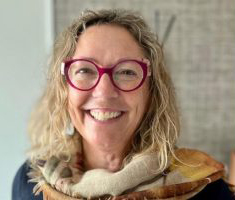
Assistant Professor at the Centre for Engineering Professional Practice and Engineering Education, University of Manitoba
Themes: 1, 2 and 6
Research and Education Focus: Decolonizing engineering curricula, and Program Evaluation
Bio: Jillian is a collaborator on the project.
“I am a white settler woman who grew up as a visitor on Treaty One Territory and in the Homeland of the Métis Nation, in the place now known as Winnipeg, Manitoba, Canada. I am a mom, wife, sister, daughter, aunt, friend, and mentor. I am a visual artist, writer, educator, and researcher, and I teach communication, engineering education research, career design, and decolonizing engineering courses. I am grateful for my husband and our three kids, our families and friends, our pets, and the opportunity to work in this field. I love nature, and play ringette with a group of neighborhood mothers on a team called, The Awesomes!”

CAIP Chair in Aquatic Ecosystem Health, Department of Biological Science, University of Calgary
Themes: 1, 3, 4 and 5.
Research and education Focus: Fish biology, impacts and community-based monitoring.
Bio: Dr. Munkittirick is a collaborator on the project.
Kelly Munkittrick received a B.Sc. in Fish and Wildlife biology in 1980 and a M.Sc. in environmental physiology in 1983, both from the University of Guelph. He completed his PhD in 1988 in Aquatic Toxicology at the University of Waterloo.
Most recently, he was the Executive Director of Cold Regions and Water Initiatives at Wilfrid Laurier University. Prior to Laurier, he was the Director of Monitoring at Canada’s Oil Sands Innovation Alliance (COSIA; 2013-2017), where he worked to help the oil sands industry adjust to a new regional environmental monitoring framework, and to align monitoring across oil sands companies. Kelly previously also held a Tier 1 Canada Research Chair in Ecosystem Health Assessment at the University of New Brunswick (2001-2013), and 11 years as a Research Scientists with the Canadian Federal Government (6 at Fisheries and Oceans and 5 at Environment Canada).
Kelly Munkittrick is a co-founder of the Canadian Rivers Institute, was the Scientific Director of the Canadian Water Network, and have sat on scientific panels for UNEP, OECD, and the Great Lakes Fisheries Commission. He has developed regional monitoring programs in South America, Asia and North America, have worked with various governments to improve environmental assessment models, and have taught environmental monitoring study design in more a dozen countries.
Chair, Professor, Indigenous Learning Department, Lakehead University
Themes: 1, 4, 5 and 6.
Research and education Focus: History, settler colonialism and social history of health.
Bio: Kristen is a collaborator on the project.
Kristin Burnett is a Professor in the Department of Indigenous Learning. She did her BA and MA in History at the University of Calgary and completed her PhD at York University in 2006. Following a brief stint as a SSHRC post-doctoral fellow at the University of Alberta, Burnett came to work at Lakehead University in the Department of History in January of 2007 before transferring to the Department of Indigenous Learning in August of 2012.
Burnett is a settler scholar whose research interests can broadly be defined as: Indigenous history, settler colonial and critical race studies, women and gender history, the social history of health and medicine, and Canadian history. Burnett has published broadly on topics related to Indigenous health and well-being, and much of her current research and policy work engages with systemic barriers people face accessing health care, social services and supports, and food.
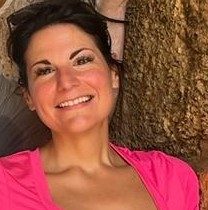
Associate Professor in Health Disciplines, Athabasca University
Themes 1, 2, 3 and 4.
Research and education Focus: Indigenous methodologies and environmental health.
Bio: Dr Ray is a co-applicant on the project. She is an Anishinaabe scholar and Indigenous Research Chair in Decolonial Futures.

Canada Research Chair in Freshwater Ecology and Fisheries, Associate Professor, Director, Graduate Coordinator, Lakehead University
Research and education Focus: Fisheries biology, aquatic contaminants and monitoring.
Themes 1 and 5.
Bio: Dr Rennie is a co-applicant on the project. He is an aquatic food web ecologist, Tier II Canada Research Chair in Freshwater Ecology, and Research Fellow at the IISD Experimental Lakes Area.

Assistant Professor, Indigenous Scholar, Department of Microbiology, University of Manitoba
Themes 1 and 5
Research and education Focus: Water quality, wastewater management
Bio: Dr Uyaguari-Diaz’s is a Montubio scholar. He is a co-applicant on the project. His research program focuses on water quality and wastewater treatment facilities in Indigenous communities.
Associate Professor, Indigenous Scholar, Department of Earth, Energy and Environment, University of Calgary
Themes 1, 3, 4 and 5.
Research and education Focus: Indigenous science, water quality, environmental health.
Bio: Dr. Ballard is a co-applicant on the project. She is an Anishinaabe from Lake St. Martin First Nation. She combines both Indigenous knowledge and Western science, focusing mostly on understanding and managing declines in water quality. Dr. Ballard has researched and documented the flooding and emergency responses of her traditional homelands at Lake St. Martin First Nation and neighboring communities. She has experience working with UN organizations on biological diversity, climate change and Indigenous Peoples. She is currently a member of the COSEWIC Aboriginal Traditional Knowledge Subcommittee.
She has served as an advisor with the Ecological Reserves Advisory Committee (Manitoba), and as Commissioner, Clean Environment Commission; and past board member with the Winnipeg Regional Health Authority. She also joined the Environment and Climate Change Canada (ECCC) to form the department’s first Indigenous Science Division.

Managing Director, AMR Associates, Community Engaged Learning Coordinator, Indigenous Community Engaged Learning Center, University of Manitoba
Themes: 1, 2 and 3.
Research and education Focus: Indigenous education and Indigenizing curricula.
Bio: Nicki (Métis) is a collaborator on the project.
Nicki Ferland is a Two-Spirit Red River Métis Sundancer. She was raised on ancestral lands in urban and rural Métis parishes, including the historic St. Vital and St-Boniface communities (Winnipeg), and Lorette, Manitoba.
Nicki has a background in Indigenous and Aboriginal rights, Indigenous and anti-racist education, Indigenous research and community engagement, and holds a Master of Education in Indigenous land-based education from the University of Saskatchewan.
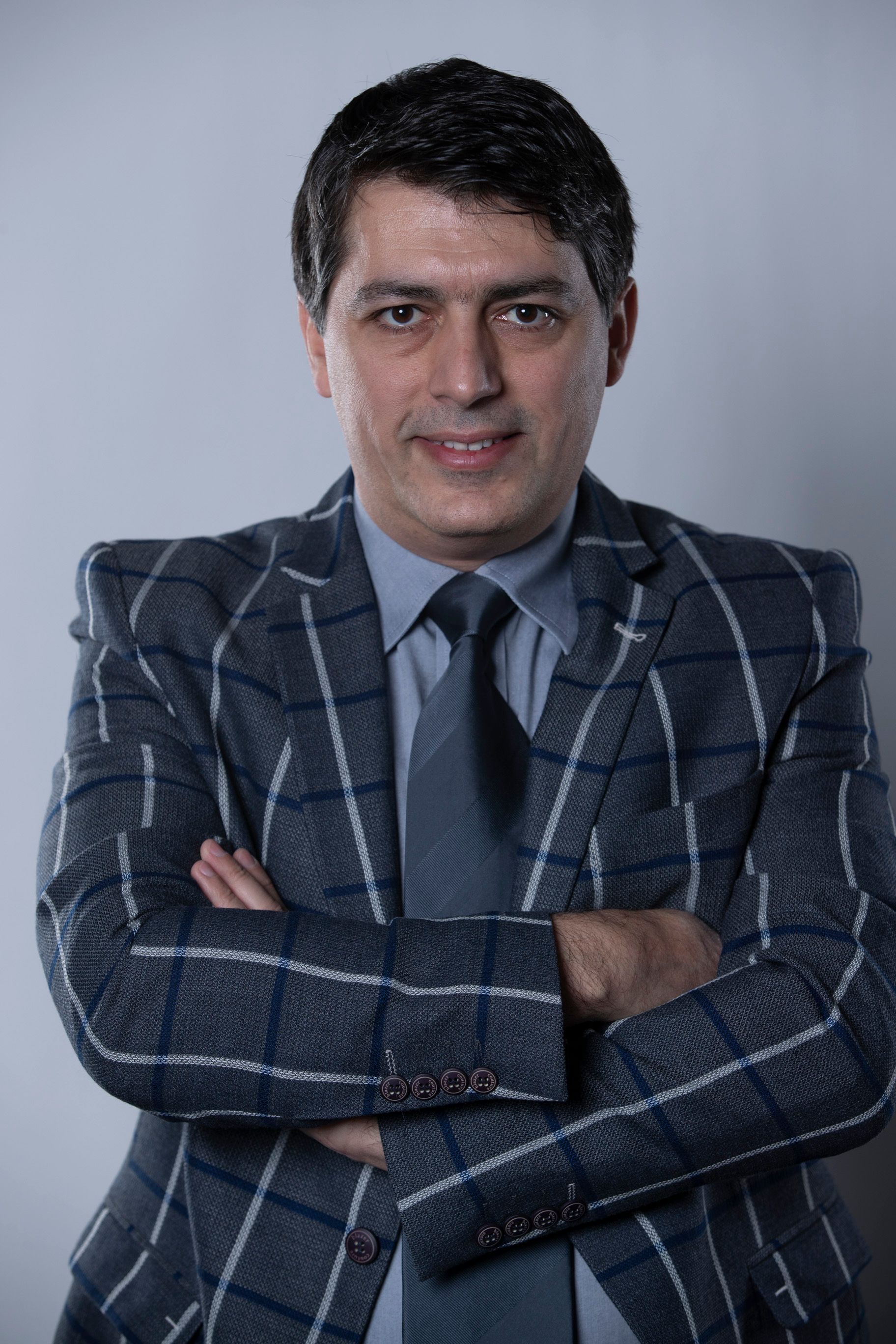
Director and Professor, Canada Research Chair (Tier II) and Industrial Research Chair, Lakehead University
Themes 1, 2 and 3
Research and education Focus: Value-added green chemicals
Bio: Dr Fatehi is a co-applicant on the project. Pedram is Canada’s Research Chair in Green chemicals and Processes.
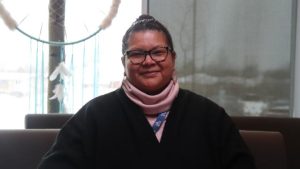
Department head of Indigenous Initiatives and Reconciliation, University College of the North
Themes 1, 2, 3, 4 and 5.
Research and Education Focus: Two-Eyed Seeing, culture and language, impact assessment.
Bio: Dr. Neckoway is an Ininew-Cree Scholar who promotes local languages and assesses how communities and the environments are affected by hydropower.
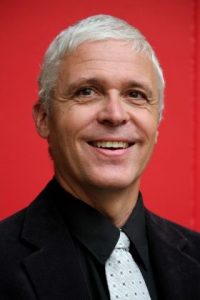
Director of Engineering Access Program (ENGAP), University of Manitoba
Themes: 1, 2 and 3
Research and Education Focus: Indigenous Education and NSE
Bio: Randy is a collaborator on the project.
Sometimes engineers are story – tellers. Take Randy Herrmann. As Director of ENGAP at the University of Manitoba, one of his jobs is to go out and tell students and their teachers what engineering is all about. As he says, he’s gone from “engineering buildings to building engineers”.
Like many other people who choose to study sciences, Randy chose engineering because, “I always enjoyed math and science in high school and figured that engineering used both of these elements. Engineering was also one of the few areas where the education reflects the job that you will be doing. The things that you learn in University are directly applicable on your first day of your first job as an engineer.”
Randy applied the skills he learned in university at a consulting engineering firm, but was soon working as the Technical Services Advisor for the Ogemawahj Tribal Council. Then he became a Project Manager for the Rama First Nation, where he directed the construction of many community buildings including the arena/recreational complex, seniors’ complex, school, strip mall and new Band Council office. What struck him most from his work with First Nations communities and within the field of engineering is the lack of Indigenous engineers. His desire to help change the situation and make it easier for Indigenous students to pursue post-secondary professional science degrees led him back to the University of Manitoba and his position of Director of ACCESS programs.
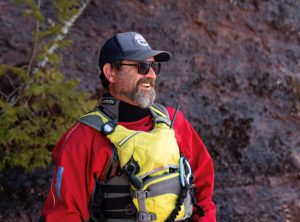
Associate Professor, Center of Excellence for Sustainable Mining & Exploration Geography & The Environment Water Resource Science, Lakehead University
Themes: 2.
Research and education Focus: Indigenous community and environmental monitoring.
Bio: Robert is a collaborator on the project.
Dr. Stewart is a faculty member in the Department of Geography at Lakehead University. He is interested in research pertaining to water security and water resource management in the Lake Superior Basin. He is currently exploring community-based resource management strategies that reduce vulnerability to water issues and protect watershed and coastal environments.
Associate Vice-President, Community and Industry Solutions, University College of the North
Themes: 2, 4 and 5.
Research and education Focus: Partnerships, networking and community outreach
Bio: Rob is a collaborator on the project.
Associate Professor, Faculty of Arts, Business and Science, University College of the North
Themes 1, 2 and 5.
Research and Education Focus: Science, Engineering, adult education.
Bio: Dr. Peter is a collaborator on the project.
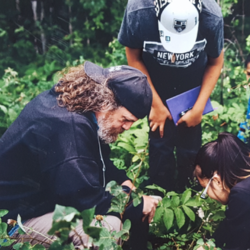
Professor, Departments of Environment and Geography, Coordinator of the Environmental Conservation Lab, University of Manitoba.
Themes 1, 2, 3, 4, 5 and 6
Research and education Focus: Traditional use plants, GIS and mapping, and environmental restoration.
Bio: Dr McLachlan is the Principal Applicant for the project. He works in close collaboration with Indigenous communities across Canada. His work includes community-based environmental conservation and restoration, biophysical impact assessment, food security, and health. He coordinates many partnership-based grants in addition to being the Principal Applicant and coordinating Indigenous CREATE.
We use cookies to improve your experience on our site. By using our site, you consent to cookies.
Manage your cookie preferences below:
Essential cookies enable basic functions and are necessary for the proper function of the website.
